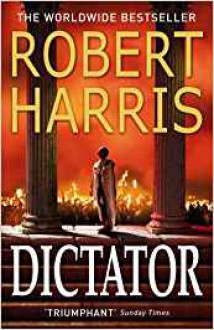
September 1938, the world is on the brink of war. Hitler has his eyes set on Czechoslovakia, bringing the Sudeten-Germans into the Reich. At the eve of the invasion, Britain's prime minister Chamberlain tries everything to prevent open war. But is peace worth any cost?
That's actually the question around which this whole novel revolves. Harris adds 2 young staffers to each side to sort of add the human component to these events, the immediacy of the threat, both of impending war but also of the further unimpeded rise of Hitler. History of course tells us that war broke out nonethess, albeit a year later, after the invasion of yet another country. It also tells us that appeasement only works so far: At some point one has to draw a line, at the latest when the fundamental principles of one's own state and way of life are threatened.
So, what would have happened had the world not silently condoned the invasion of Czechoslovakia but intervened then and there? Were the allied forces truely so militarily unprepared in their (re)armaments after WW1, as is indicated here, that they wouldn't have stood a chance if the war had begun in 1938? And what would that have meant for the holocaust: fewer victims? Or even more (after the defeat of the allied forces)? Would Hitler have had the time to surround himself with sycophants and like-minded people if he had been challenged openly (which is the point that Hartmann makes why it's important that Britain doesn't give in to Hitler's demands)?
Harris already delved into these what-if scenarios with his excellent "Fatherland" set in a world where Nazi Germany had won the war... and it's still a mind-boggling thought experiment, the change of a single event causing major consequences (or, in this case, the failure of affecting said change). The only downside to this novel is the fact that it takes about 200 pages to really get going, but once you're past that, this is a page-turner.

 Log in with Facebook
Log in with Facebook 









